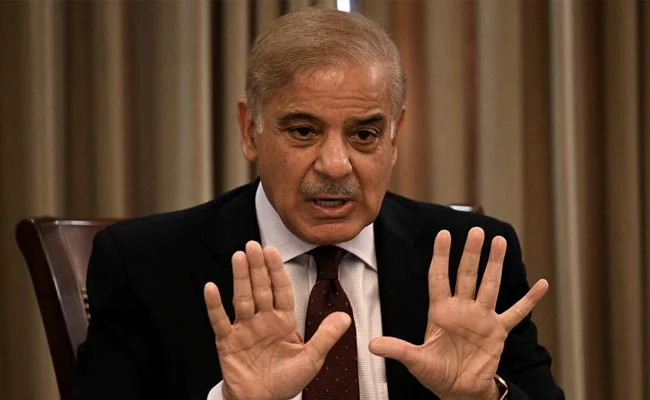As requested by Pakistan Tehreek-e-Insaf (PTI) Chairman Imran Khan, PM Shehbaz Sharif once more rejects early elections, stating that the present National Assembly’s term would end in August of next year, at which point a transitional administration will hold general elections.
As rejected early elections PM stated that the elections “would be held on schedule” in an interview with the Turkish Anadolu Agency. He also emphasized that the existing administration was elected by the people of Pakistan and that the process was constitutional.
Shehbaz Sharif said that his administration has developed a “mix of policies” to combat the economic slump while acknowledging that “we have very little time” to recoup our losses before going bankrupt and experiencing a financial meltdown.
Let me state unequivocally that the next elections will take place on schedule. The present National Assembly’s mandate will end in August 2023, after which a transitional administration would be put in place and elections will be held, he said.
In response to a query on his predecessor and Imran Khan’s call for early elections, he replied, “This government came into existence through a constitutional process and enjoys the mandate of the people of Pakistan.
According to PM as Once More Rejects Early Elections
The current coalition government “represents all political parties of the country with the exception of the PTI and is occupied with addressing the matters of significant significance.”
The prime minister claimed that because the Imran Khan government’s economic policies were not pro-growth, they caused the economy to face several difficulties.
He continued by saying that the economy was “on the edge of” collapse when he took power and was dealing with several local and international problems.
The consequences of the Russia-Ukraine crisis, excessive monetary tightening, supply-side shocks, lingering epidemic effects, declining investor confidence, rising inflation, and other factors were all affecting Pakistan’s economy, he claimed. He continued by saying that his administration had taken corrective action, some of which, he recognized, had negative impacts.
“There is no doubt that some of our policy choices, such as the elimination of untargeted subsidies, increased the cost in the near run. However, the majority of our programs are more likely to provide advantages over time, according to the prime minister.
Foreign Relations
Prime Minister Shehbaz emphasized that inter-state relations should be “based on mutual respect”. He said that “our longstanding and broad-based relationship” with the US was “committed to deepen and widen”, while Pakistan and China “will continue to exercise vigilance to ensure that our detractors’ plans” failed.
“In recent months, engagement between both Pakistan & US countries has been quite productive and substantial. Our interactions at various levels have intensified, which manifests in that the relationship is strengthening,” he said.




